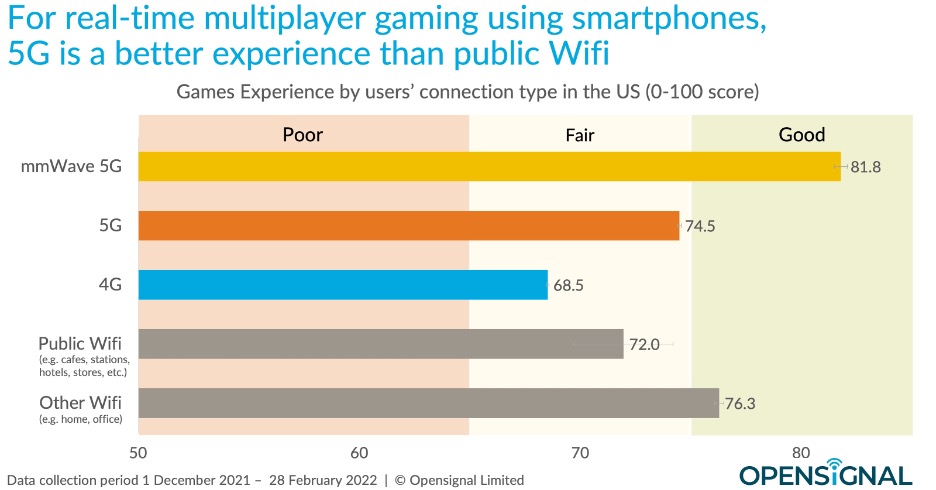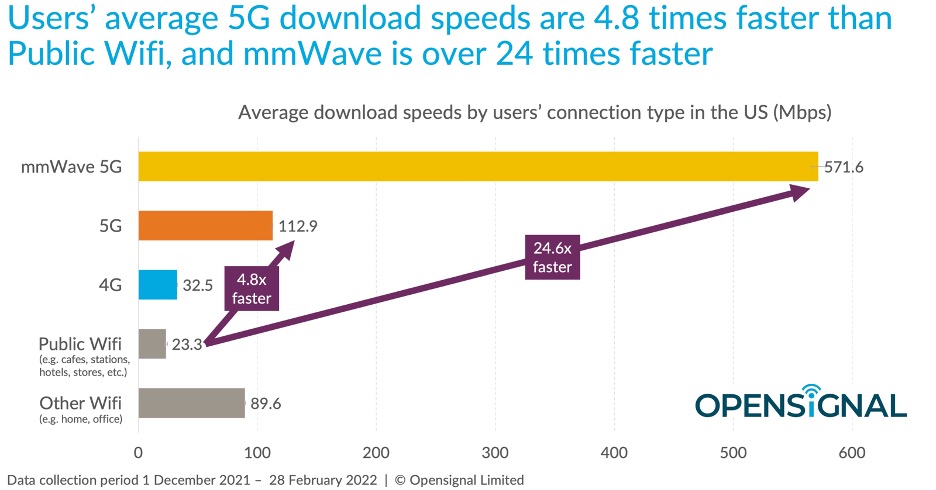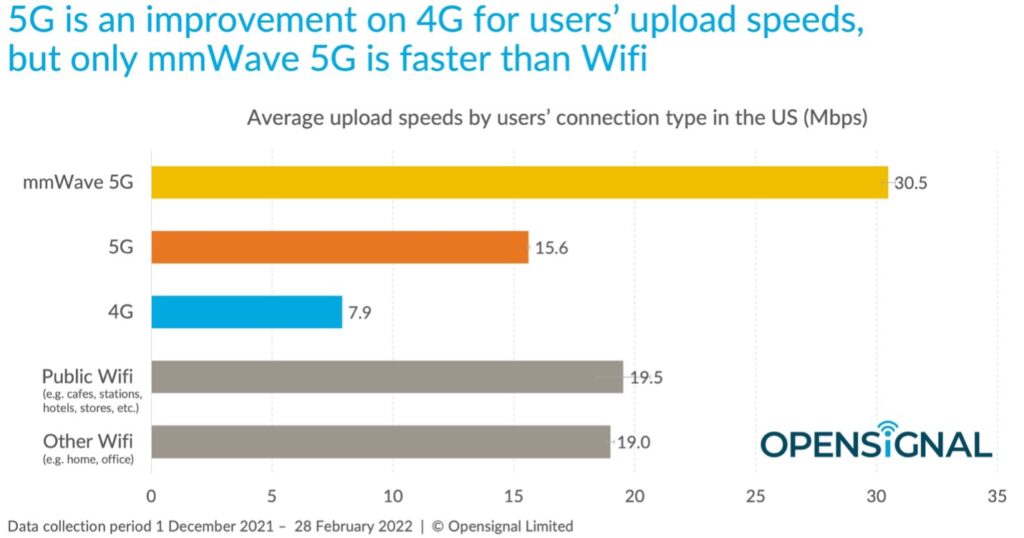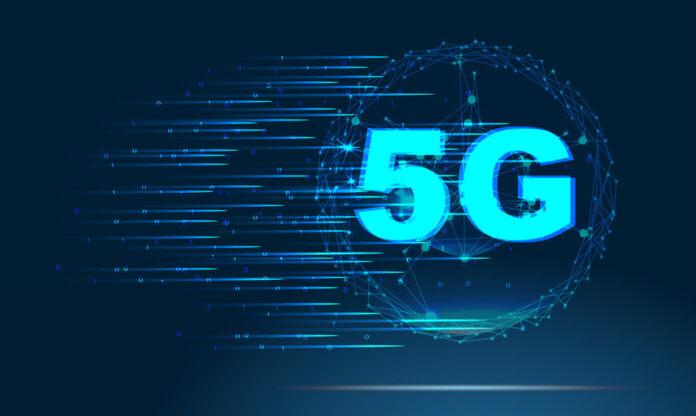Opensignal users that connected with 5G scored 74.5 on a 100-point scale when gaming, compared to public Wi-Fi’s score of 72
According to Opensignal, mid-band 5G is making cellular much more competitive with Wi-Fi for mobile experiences like gaming and surfing the web.
“Opensignal’s latest analysis demonstrates that smartphone users now have superior average download speeds using 5G than on Wifi connections in the U.S.,” wrote Ian Fogg, who leads Opensignal’s Analysis team. “Plus, Games Experience is also superior using 5G than with the Public Wifi commonly available in stores, hotels or cafes.”

Users connected with 5G scored 74.5 on a 100-point scale when gaming, compared to public Wi-Fi’s score of 72. Opensignal also revealed that those using mmWave 5G had a score of 81.8, surpassing even the score of 76.3 seen by those users connecting via Wi-Fi at non-public locations such as the home or office.
“Already, users see a better multiplayer mobile gaming experience and faster average download speeds with 5G than with Public Wifi. The main limitation for 5G now is the reach of 5G services but this is changing. As a result, users must no longer assume cellular is worse than Wifi, and should try 5G if their Wifi connectivity is poor,” Fogg provided.
When Opensignal last examined how cellular speeds compare to Wi-Fi in the U.S., the firm found that despite the similar availability of 5G mmWave and public Wi-Fi, smartphone users’ average speeds with 5G mmWave — 640.5 Mbps — were almost thirty times faster than those seen when using public Wi-Fi. However, this latest report, which focused on mid-band 5G, represents a notable “transformation” in the sense that it indicates that for the first time, average download speeds with 5G are “indisputably faster” than public Wi-Fi, but also any other type of Wi-Fi network.

“To put it another way, the overall 5G experience has improved faster than the Wifi experience, and now average 5G download speeds of 112.9 Mbps are faster than both Public Wifi (23.3 Mbps) and Other Wifi locations (89.6 Mbps),” wrote Fogg.
Things get even more impressive when it comes to average download speeds. Smartphone users connecting with 5G saw 4.8 times faster download speeds with 5G (112.9 Mbps) than with Public Wi-Fi (23.3 Mbps) and other Wi-Fi networks such as at home or in the office (89.6 Mbps).

When it comes to average upload speeds, 5G’s improvements over Wi-Fi were more modest; however, the firm dis point out that the average upload speed when using 5G (15.6 Mbps) was almost twice as fast as the 7.9 Mbps using 4G.
The firm expects the overall experience on 5G to further improve as the tier 1 carriers continue their mid-band spectrum deployments.

